Your support is needed
Severe drought, poverty, displacement and conflict have left millions of people across Africa on the brink of famine and in urgent need of help. Your donation can provide much needed support to communities facing hunger
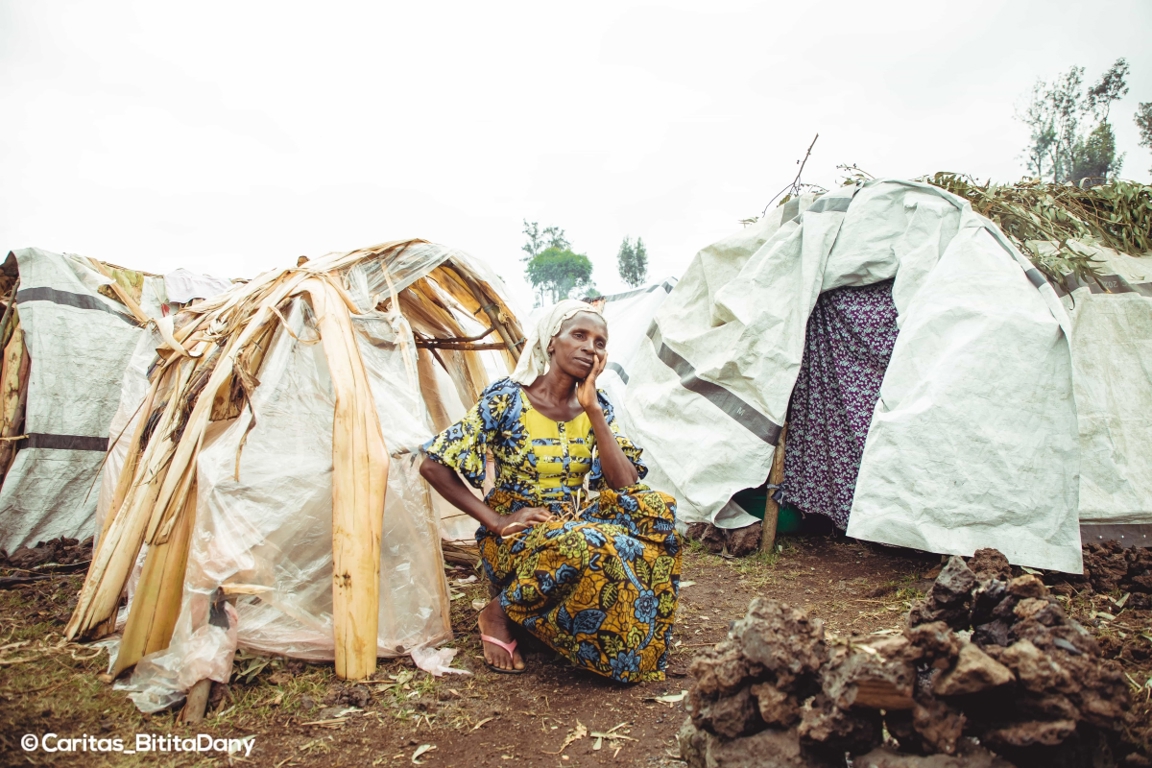
A woman in an IDP camp in Democratic Republic of Congo. Photo: Bitita Dany/Caritas Goma.
Humanitarian crisis in the Horn of Africa
Your support is urgently needed to provide lifesaving assistance to as many as 9.4 million people in Ethiopia.
The ongoing conflict across Ethiopia has destroyed health facilities; slowed the rate of lifesaving COVID-19, polio and measles vaccinations and left families across the region at risk of famine and malnutrition.
- At least 5.2 million people urgently need food support.
- 3.1 million children are already at risk of malnutrition.
- Over 3.5 million people no longer have access to safe drinking water.
Fearing for their lives, thousands of families have fled to safety in other parts of Ethiopia and neighbouring countries - many of them women, children, the elderly and sick people.
There is no end in sight for the conflict, and it is only getting worse.
This is as the region continues to face what the UN described as the worst locust plague in 25 years which destroyed crops across the country and left millions without their harvest after months of labour.
Your lifesaving assistance is urgently needed for the people across Africa affected by the food crisis and conflict.
We’re working with our partners on the ground to bring vital aid to vulnerable families in Ethiopia.
- Food distributions to households at risk of malnutrition
- Clean drinking water and support for sanitation
- Cash transfers to households at risk of poverty
- Hygiene supplies, including soap and hand sanitisers
- Seeds and household items for families impacted by conflict and displacement
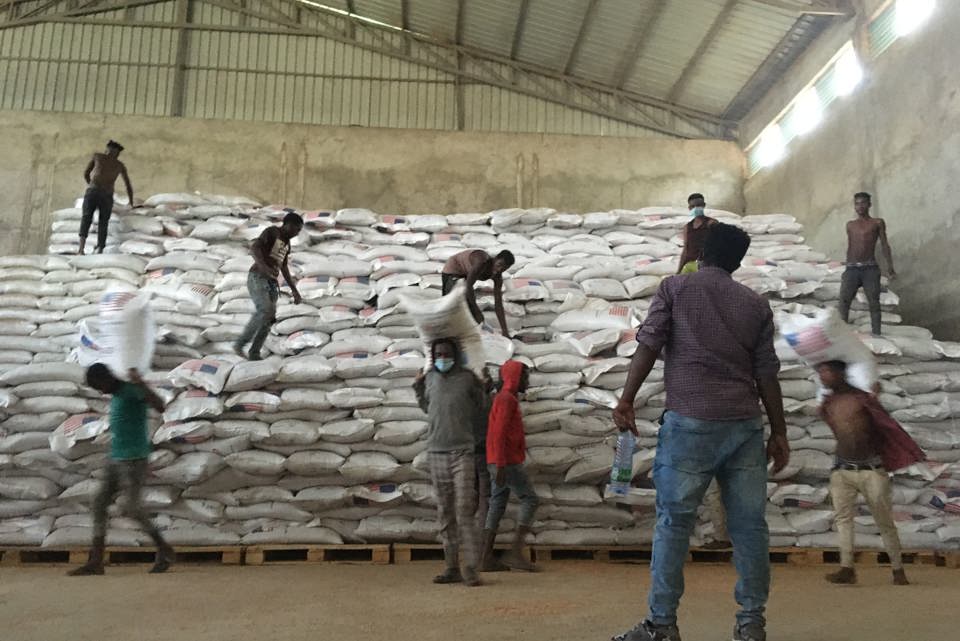
Food distribution in Ethiopia. Photo: CRS
Since the outbreak of conflict the humanitarian need in Ethiopia has been rapidly outpacing aid.
Your generous support can make an enormous difference to tackle this enormous crisis and help to save millions of lives.
Famine looms across the Horn of Africa, leaving millions of people at increased risk of hunger and poverty.
The region is facing numerous simultaneous crises:
- Severe ongoing food insecurity
- Droughts, flooding and locust plagues exacerbated by climate change
- Ongoing impacts of the COVID-19 pandemic
Faced with these challenges, many families that have long struggled to grow enough to eat will find themselves with no food at all.
Women and girls are particularly at risk during droughts, as they need to spend more and more time collecting water for the family, taking them away from school.
Many families lack access to adequate healthcare, clean water and sanitation, and when disasters strike, the steep cost of imported medical and emergency supplies puts some of the most marginalised people at risk. We work with our partners on the ground to get food, clean water and first aid to communities as quickly as possible.
With your help, we can make sure that communities get the emergency supplies they need to survive, rebuild and recover from crises.
Donate TodayLatest News
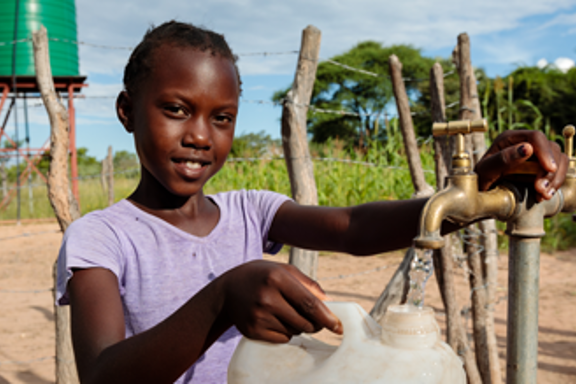
Photo credit: Richard Wainwright/Caritas Australia.
From Aid to Empowerment: The Evolution of Caritas Australia’s Program work in Africa
In recent decades, Caritas Australia has evolved its programs to align with key learnings in the aid sector. Far from the welfare approach that pervaded the sector decades ago, Caritas Australia actively pursues evidence-based program models, with a focus on inclusion for those most vulnerable.
Read more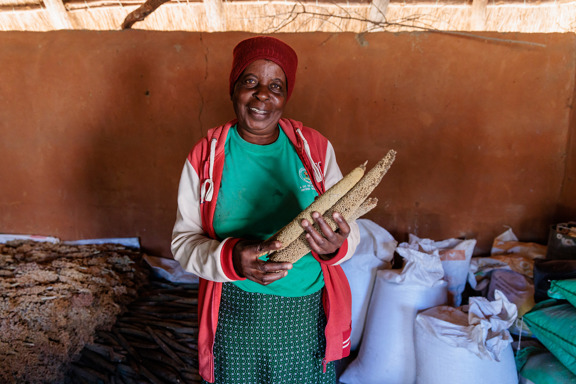
Priscilla holds millet from this year’s harvest in her storeroom at her home in Hwange district, north western Zimbabwe. Photo: Richard Wainwright/Caritas Australia
Empowering Communities: Caritas Australia's Impact in Zimbabwe
In the heart of Zimbabwe, many in the community are grappling with hyperinflation, widespread poverty, and political unrest. Chronic malnutrition, exacerbated by food shortages, a struggling healthcare system, and heightened rates of HIV infection plague the nation. All of these factors are what have pushed nearly half of Zimbabwe’s population of 7.9 million people into extreme poverty.
Read more
Dignity kits distribution by CAFOD in Sudan. Photo CAFOD
Caritas Australia echoes calls for more Sudan funding as a year of conflict passes
A year ago, civil conflict broke out between armed militias in Sudan. In that year around 13,900 people have lost their lives with over 8 million people displaced. About half of the population – 25 million people including 14 million children – now need humanitarian aid and protection assistance.
Read moreWhen emergencies hit, we support partners on the ground with
Food, Water and Emergency Shelter
Hygiene, PPE and Sanitation Kits
Medication and Health Services
Trauma Support
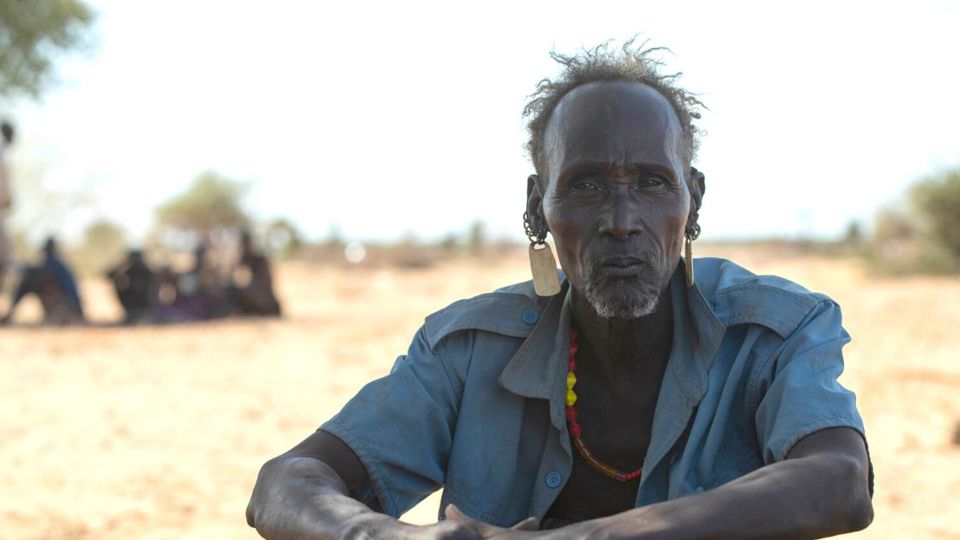
Bute, a village elder living in southern Ethiopia. Photo: Zacharias Abubeker/Caritas Australia
Where does my donation go?
The funds you donate to this appeal go to Caritas Australia’s Emergency Response Fund and will be used to provide humanitarian assistance to communities affected by this crisis. Should circumstances prevent us from delivering aid to this emergency, or if excess funds remain after the crisis, donations will be directed to other emergencies where Caritas has humanitarian operations.












